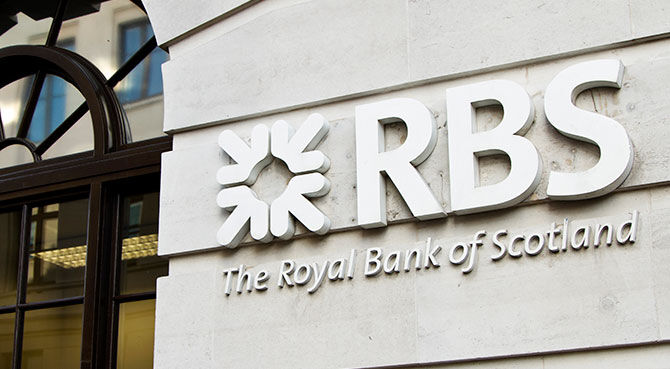‘Six months before UK banks start to relocate’
The relocation of a number of financial sector firms will begin early next year. As talks continue businesses are increasingly hoping for confirmation of a transitional deal to ensure they are prepared.

Transitional deals will inform corporate relocation
In an interview with Sky News, Sir Howard said it was inevitable that jobs would relocate anyway, but that, if a deal were reached that still enabled the sector to have reasonable access to European markets, the exodus would involve “a few thousand people and not tens of thousands”.He warned there was now a “very, very, very tight” timeframe for ministers to reach a transitional agreement with the EU before banks triggered contingency plans to relocate away from the UK, but he said that other EU states had little incentive to do such a deal quickly as they scrambled to attract jobs away from London.“If nothing is certain by the end of the first quarter of next year, by March, then people will trigger those contingency plans, because they won’t have time to put them in place by March 2019 unless they start at least a year ahead. That’s the moment at which we need to know what the transition arrangements are,” Sir Howard said.“I think what we are seeing now is the un-wisdom of triggering Article 50 when we did without knowing what the end point was and I’m not sure why we really did that. Perhaps that was purely domestic political reasons but it didn’t start the negotiations off in a good way.”Interviewed by Niall Paterson, Sir Howard added, “If we go in for Brexit we will find that jobs will leave the City and there will be a rebalancing of financial activity within Europe.“I think it is going to be quite considerable over time because up to now people have centered their European activities (in London). And we are talking particularly about the American banks, the Japanese banks, even the Chinese banks – they have chosen to put an enormous lion’s share of their activity in Europe based in London and they are now rebalancing.“That’s going to happen whatever the outcome of the Brexit negotiations are. So the game is can we provide an outcome, which minimises that cost? It will not remove it, it will definitely be a cost and the question is can we negotiate enough market access so that that cost is at the margin, is a few thousand people and not tens of thousands.”However, as far as RBS was concerned, Sir Howard said the bank would only see a “relatively small” number of jobs move to Amsterdam under its own Brexit contingency plan.Meanwhile, the British Retail Consortium (BRC) warned in a report on Monday that, if the retail sector loses access to EU workers because of Brexit, UK shop prices might have to rise.EU sourced workforce in UK hopes for solid ground
The BRC’s annual workforce survey showed that while only six per cent – 160,000 people – of the industry’s workforce originated from elsewhere in the EU, the jobs were concentrated in warehouse and distribution jobs.A fifth of firms reported that they had already had EU staff leave because of Brexit uncertainty and more than half of retailers said their EU employees were worried about their right to remain in the UK.Related stories:
- Rising to the challenge: supporting inward investment
- Brexit talent challenge: strategies and approaches
- RBS opts for Amsterdam as post-Brexit hub
Helen Dickinson, BRC chief executive, said, “It is not right that 16 months after the referendum these people still don’t have the security they need to continue their lives. And from our data it is clear that unless we have the right structures in place to support retailers attract, recruit and retain workers, consumers will soon start to see and feel an impact as they shop.”John Hannett, general secretary of the Union of Shop, Distributive and Allied Workers, added, “The sector will continue to need EU workers to come and work in retail, distribution and food manufacturing. We need a debate, based on facts and evidence, as to what that post-Brexit retail sector will look like.”A government spokesman said, “After we leave the EU we will have an immigration system which works in the best interests of the UK. Crucial to the development of this will be the views from a range of businesses.“We have asked the Migration Advisory Committee to assess the role EU citizens play in the UK economy and society. Their independent process will allow employers to submit their thoughts to an influential group of experts, independent of government.”
Read David Sapsted's article on Brexit: The great relocation battle – which discusses the tussle for European agencies relocating post-Brexit – in the Autumn 2017 issue of Relocate Magazine.
For related news and features, visit our Brexit section.Relocate’s new Global Mobility Toolkit provides free information, practical advice and support for HR, global mobility managers and global teams operating overseas.
 Access hundreds of global services and suppliers in our Online Directory
Access hundreds of global services and suppliers in our Online Directory
©2026 Re:locate magazine, published by Profile Locations, Spray Hill, Hastings Road, Lamberhurst, Kent TN3 8JB. All rights reserved. This publication (or any part thereof) may not be reproduced in any form without the prior written permission of Profile Locations. Profile Locations accepts no liability for the accuracy of the contents or any opinions expressed herein.



































